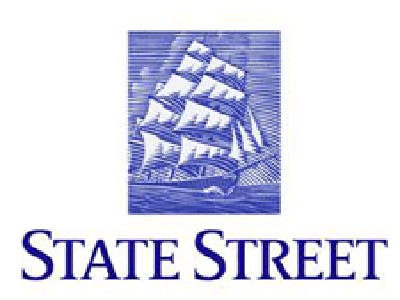State Street Corporation (NYSE:STT) is a trust bank which provides securities services to institutional investors and back end services to investment managers. It has performed well among its peers despite the financial slowdown. It passed the Fed stress test and boasts of higher returns. Investors looking for a dependable stock in the financial sector can surely bank on this company.
Trust banks and revenue generation
Trust banks are different from other commercial big shot banks in a sense that they do very little lending, thus having minimum exposure to credit risk. Mostly, they generate fee-based income compared to more of fund-based income by commercial banks.
State Street generates more than four-fifth of its revenue from asset servicing services and has a good rapport with its clients. According to the 2012 earnings call, State Street Corporation (NYSE:STT) has a retention ratio of 80% of its clients over the past decade. This scores well with a trust bank in a world where investment managers are increasingly trying to save on costs and focusing on their core competency, which is investing.
Financial performance
State Street’s financial performance has been very impressive over the years. It has the highest return on equity (ROE) among its peers. The 52-week return has been a tremendous 63% compared to the S&P index’s return of 26%. In its most recent quarter, revenue of State Street Corporation (NYSE:STT) was slightly low at $2.47 billion, however, its adjusted operating EPS of $0.96 exceeded analysts’ estimates by $0.03.
The most important parameter which defines the bank is its liquidity scenario. With a market cap of $30 billion, State Street has total cash of $58 billion. That means that the bank is standing at a comparatively risk free position with minimum credit exposure. State Street passed the Fed’s 2012 CCAR stress tests with the capital adequacy ratio lying within a comfortable range. As a result of this, it was allowed to buy back $1.8 billion worth of shares, higher than its peers. All in all, State Street Corporation (NYSE:STT) offers a better risk adjusted investment opportunity in the financial services industry.
The peers
The closest peers to State Street are The Bank of New York Mellon Corporation (NYSE:BK) and Northern Trust Corporation (NASDAQ:NTRS).
BNY Mellon generates half of its revenue from its asset servicing business and the rest from treasury services, prime brokerage, and ADR issuance. Its dividend yield of 2% may be higher than State Street’s 1.60%; however, State Street Corporation (NYSE:STT) had increased its dividend per share by 33% compared to BNY Mellon’s none. This shows that State Street is providing a higher return to investors.
BNY Mellon has undergone a share repurchase program of $1.35 billion, however it is still less than State Street’s $2.1 billion program. BNY Mellon has a diversified portfolio of assets to service and retain clients, but I still prefer State Street due to the phenomenal growth and stability it has shown in the present scenario.
Northern Trust’s wealth management business is its distinguishing factor which generates about a quarter of its revenue. In the past 10 years, Northern Trust has been able to double its asset under management (AUM) from $100 billion to $201 billion. Along with providing primary services, it also offers a range of complementary services such as tax planning, private banking, and brokerage services.
Apart from this, Northern Trust is looking to bolster its international footprint in the Europe and Asia Pacific region. Looking at the financial performance vis-à-vis its peers, State Street Corporation (NYSE:STT) still has the edge in providing returns to investors. The share repurchase program of Northern Trust boils down to a just 3.30% dividend increase compared to a 8.30% for State Street. In addition to this, the ROE of Northern Trust (9.3%) is less than State Street (10.3%).
Summary
To sum up, State Street Corporation (NYSE:STT) beats its competitors by a huge margin when it comes to providing returns. Not only this, it is trading at a discount to Northern Trust which has a price to book (P/B) of 1.4, whereas State Street has a P/B of 1.8, thanks to its focused business and a superior ROE. It has increased its buybacks and dividend payment in 2013. Investors looking to invest in a stock having a significant upside potential and providing competitive returns at the same time should definitely not miss this opportunity.
Tanya Kanodia has no position in any stocks mentioned. The Motley Fool has no position in any of the stocks mentioned.
The article Should You Bank on This Stock? originally appeared on Fool.com.
Copyright © 1995 – 2013 The Motley Fool, LLC. All rights reserved. The Motley Fool has a disclosure policy.


